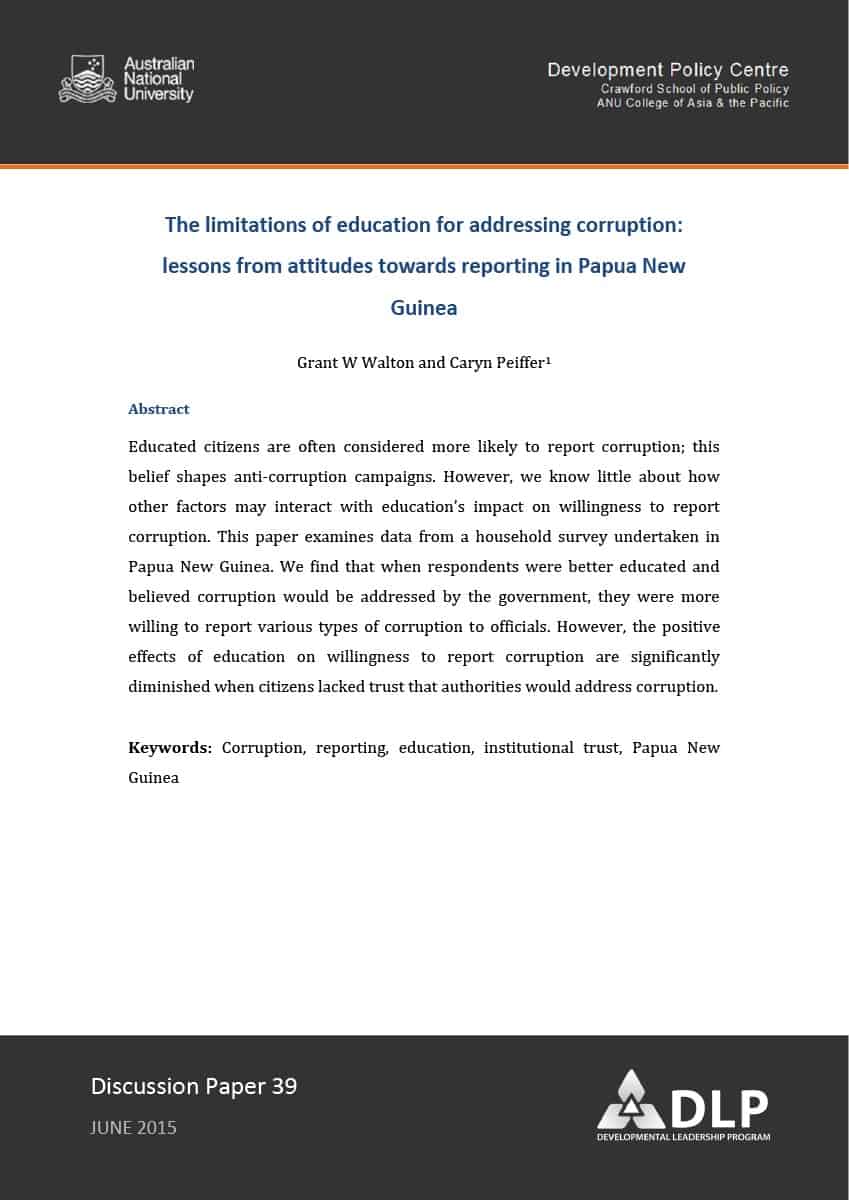Educated citizens are often considered more likely to report corruption; this belief shapes anti-corruption campaigns. However, we know little about how other factors may interact with education’s impact on willingness to report corruption.
This paper examines data from a household survey undertaken in Papua New Guinea. It finds that when respondents were better educated and believed corruption would be addressed by the government, they were more willing to report various types of corruption to officials. However, the positive effects of education on willingness to report corruption are significantly diminished when citizens lack trust that authorities will address corruption.
The paper is published in collaboration with the Australian National University’s Development Policy Centre.
See the authors’ Devpolicy blog post, 17 June 2015: Is education a magic bullet for addressing corruption? Insights from Papua New Guinea.










